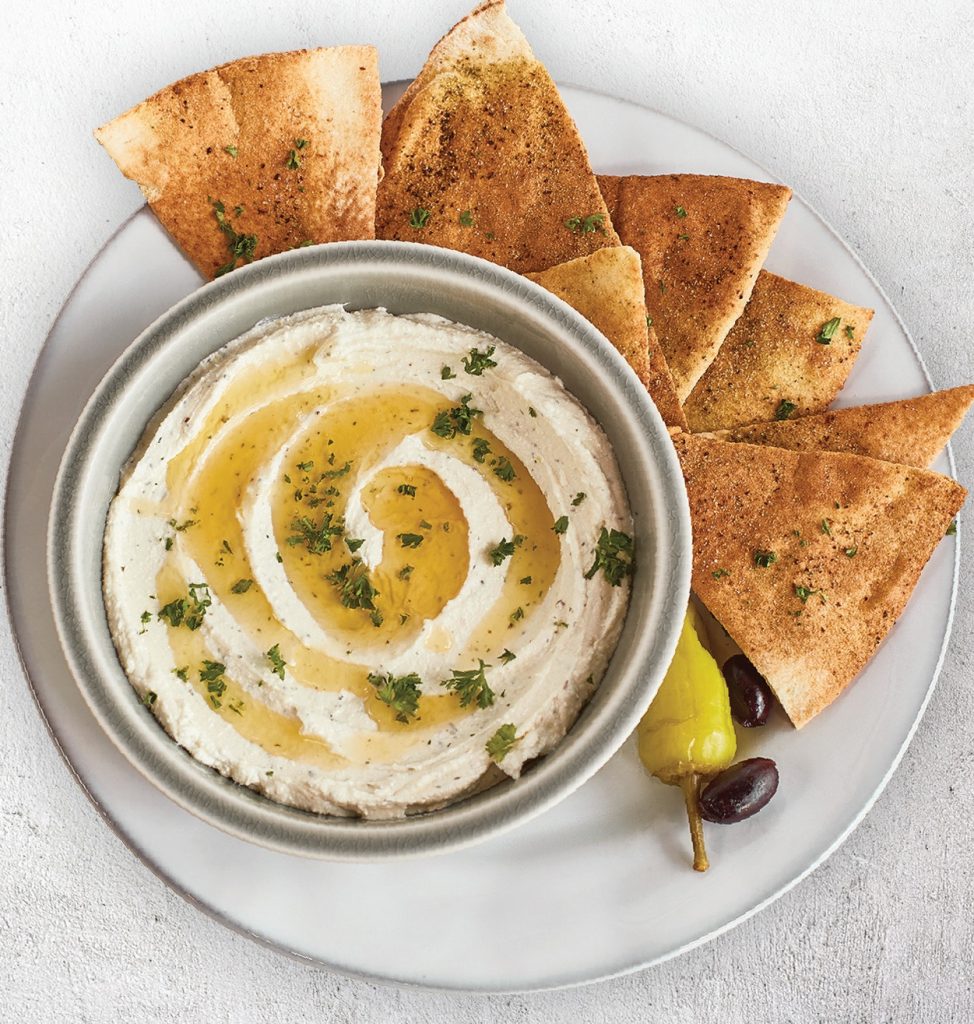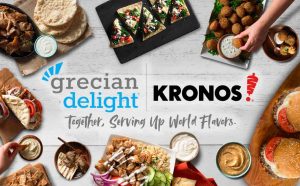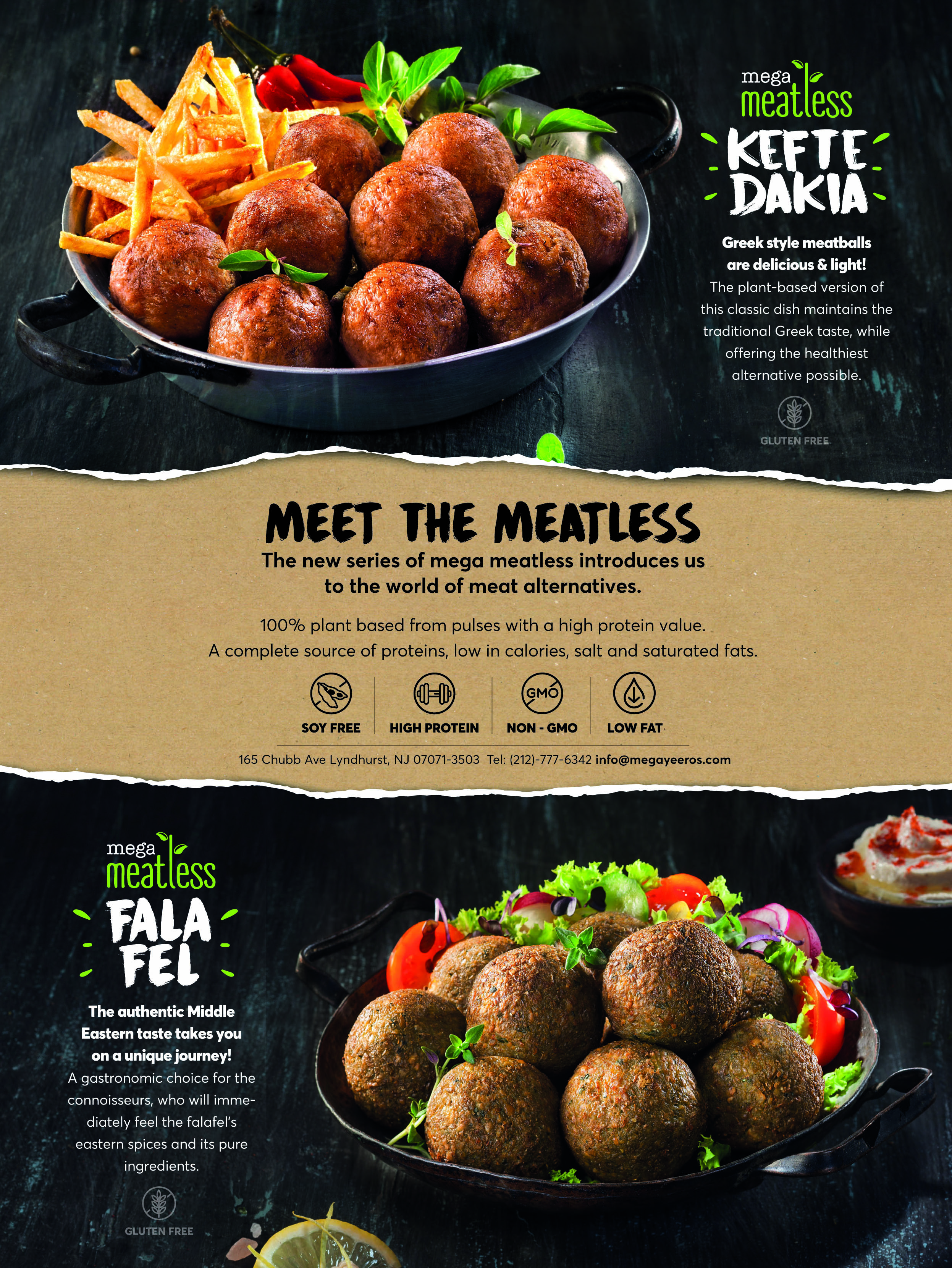Franchises to Watch in 2021
Posted by estiator at 10 March, at 03 : 13 AM Print
IN A PANDEMIC ECONOMY, DO FRANCHISES HAVE AN EDGE?
By Michael Kaminer
➽ TO FRANCHISE OR NOT TO FRANCHISE?
The question has nagged at many restaurateurs who weigh the costs and benefits of aligning with a regional or national brand.
Operating independently means total freedom, unrestricted creativity, growth at your own pace, and a larger potential upside if and when you sell. Franchise brands, on the other hand, offer plug-and-play systems, marketing support, and a customer base that knows and loves the product. Before the nightmare of 2020, many independents wouldn’t have touched a franchise with a 10-foot skewer. But uncertainty in the industry has made established brands more appealing to both food-service newbies and veterans.
In fact, Restaurant Business reported recently that 2021 is shaping up as the strongest year ever in restaurant franchising. “A host of factors are setting the coming year up to be one of the best in the business model’s history,” Restaurant Business said. “Favorable real estate, strong performances in some sectors of the restaurant industry, a high number of suddenly unemployed restaurant workers, and low interest rates could all drive franchise sales next year to their highest seen in ages.”
When you’re with a franchise, “you have an army behind you,” Dan Rowe, CEO of franchise-development leader Fransmart, tells Estiator. “Franchises are a business of systems, processes, best practices, and a collective peer group that are all in it together. Look how important off-premise was during Covid—chains quickly pivoted, they had better buying power with the delivery companies for better deals, they had better buying power with their food delivery companies for more flexible terms. Independents are just that—by themselves.”
According to a 2020 report from the International Franchise Association, quick-service franchise restaurants are projected to generate nearly $283 billion in revenue this year; full-service restaurant franchises are expected to produce more than $80 billion. And as a whole, “franchise businesses’ economic output is expected to grow faster than the economy as a whole,” the report said.
A Greek franchise has yet to truly break out on a national scale—there’s no Greek McDonald’s or Pizza Hut—though several have become regional powerhouses. This may be the decade that finally changes, however. Our cuisine lends itself naturally to broad consumer tastes. It travels well. It’s synonymous with healthful eating; and, critically, Americans have become much more familiar and less intimidated by more diverse foods over the years.
Which are the Greek franchises to watch in 2021? Estiator rounded up some brands to know if you’re considering a leap into this business model. And even if you’re not, you might pick up a trick or two from the ways they do business.
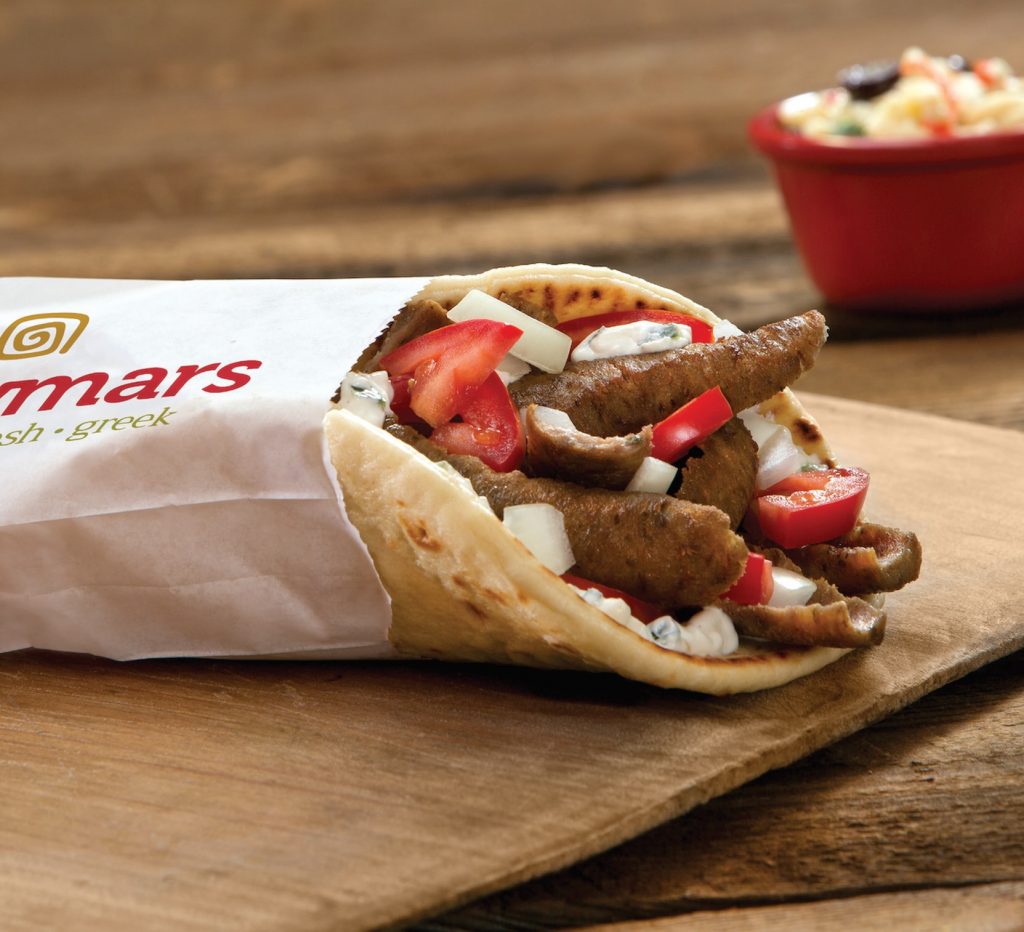
➽ Showmars
HQ: Charlotte, NC
Locations: 32
CEO: Dean Peroulas
Slogan: “Southern. Fresh. Greek.”
Greek immigrant George Couchell founded Showmars in 1982. His intention: to combine fast food and formal dining with a menu that would stand out in Charlotte. Today, under CEO Dean Peroulas, the chain has grown to 32 locations in the Carolinas, with an eye on broadening its footprint across the region. About 25% of Showmars locations are franchises; at others, the operator is “a vested partner,” Peroulas tells Estiator.
The pandemic made 2020 “a mixed bag for us, but ultimately good,” he says. “About 80% of our sales are now external, and technology integrations have helped us with curbside pickup and delivery.” Along with some menu tweaks to address the new normal, Showmars has also shifted the kinds of locations it’s scouting for growth. “We’re making sure we can find spaces with drive-through or pickup windows,” Peroulas says. “Those second-generation spaces are at a premium.”
The Showmars menu mixes staples like gyros and Greek salad with pita sandwiches, grilled fish, Southern-fried chicken tenders, and soups. “We’ve been around 40 years, and we’ve always had an indulgent side of our menu,” Peroulas said. “Now we’re putting our healthy side forward, and we’ve been highlighting more health-conscious items since the beginning of the year.” His personal favorite: the Mediterranean hummus salad with chicken, served with pita points.
For 2021, Peroulas is eager to reopen “highly dense, downtown office areas,” which have temporarily closed. “And our mall locations are at the mercy of foot traffic. But I’m very excited about the future of Showmars. We have a great leadership team in place. I’m eager to put this pandemic behind us.”
Peroulas, who started his career in independent restaurants, is rooting for independents, too. “We pull for the independents. I consider ourselves that way—we don’t rely on venture capital or investors,” he says. “Independents bring ingenuity, entrepreneurial spirit, and new ideas. They’re very resourceful. They will survive this.”
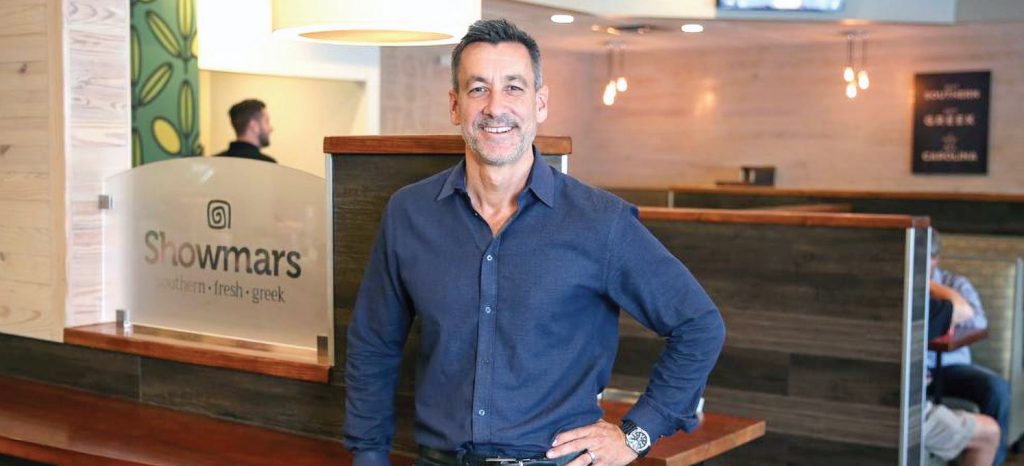
Showmars franchisee requirements: A franchisee must have held the role of Operator/ Operating Partner and shown an ability to hold the standards of company operations. The franchisee assumes the liabilities of an owner with the guidance and intellectual properties of the parent company, Showmars Hospitality. A royalty to parent company is required
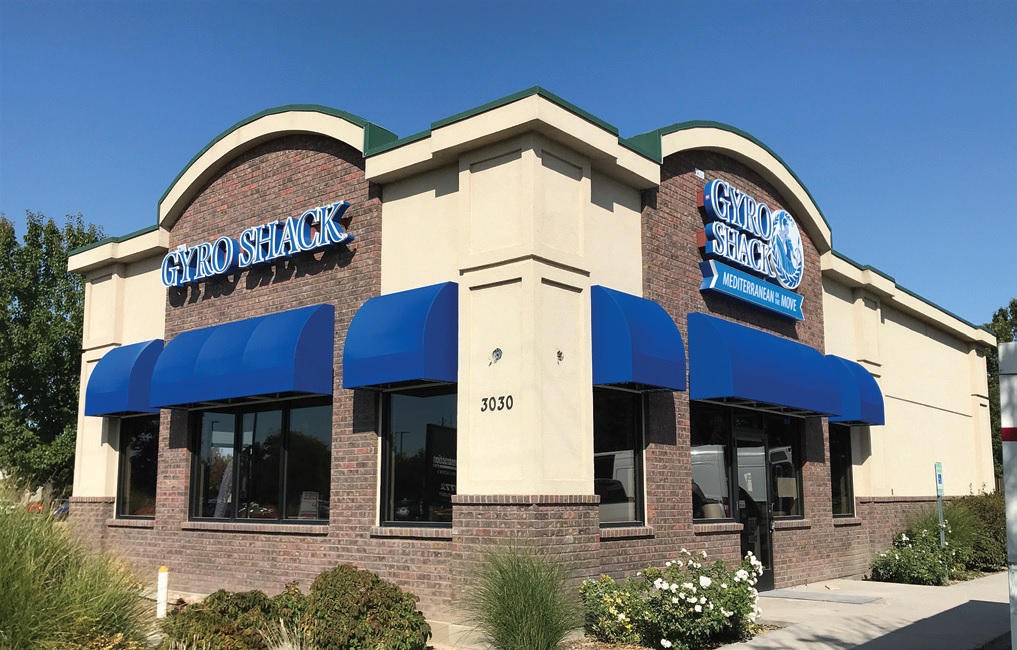
➽ Gyro Shack
HQ: Boise, ID
Locations: 9
President: Seth Brink
Slogan: “Mediterranean on the Move”
Building a menu off his mother’s recipes from Crete, Gus Zaharioudakis founded Gyro Shack in 2010 with a food truck and two repurposed coffee drive-through kiosks. After Zaharioudakis sold the business in 2015, a new team started expanding Gyro Shack across Boise. The new executives retained Zaharioudakis’ original recipes, along with twistier renditions like a Philly gyro and a spicy bacon avocado gyro.
“Two weeks after we bought the brand, Covid hit,” says president Seth Brink, part of the investment group that purchased Gyro Shack. “But it was an interesting time for us, as a brand that grew up as a drive-through. We were as well-positioned for Covid as anyone could be.” Only one of Gyro Shack’s newer locations doesn’t have a drive-through window; it’s temporarily closed. At the other eight, “sales have been great,” Brink says.
Brink and his crew have big plans for the brand. “We’re eyeing expansion into 22 states, covering all of the Rocky Mountain West,” he tells Estiator. “We’d like to have four or five locations open this year, either franchise or corporate. Then seven to nine next year, and 12 to 15 the following year.”
Geographical expansion may draw more appreciation for Gyro Shack’s menu mix as well. “Boise was not the ideal place to open Greek or Mediterranean restaurants. It’s 95% white, and not very diverse,” Brink says. “As we grow, we’re looking forward to getting into bigger cities with larger populations and customers who grew up with these foods.”
The Greek/Mediterranean category in general is “up-and-coming,” Brink says. “And we skew to many age groups. Mediterranean is seen by millennials and Gen Zers as trendy, but many of our customers are also boomers.”
Gyro Shack franchisee requirements: “Ideal franchisees should have three to five years of restaurant experience and must be lovers of Greek food,” according to the company. Single-unit franchisees must have a minimum net worth of $500,000 and meet the minimum liquid assets requirement of $200,000, and multi-unit franchisees must have a minimum net worth of $1,000,000 and meet the minimum liquid assets requirement of $300,000.

➽ Greek Xpress
HQ: Long Island, New York
Locations: 7
Founder and CEO: Jimmy Soursos
Slogan: “Fresh. Greek. Delicious.”
Greek Xpress is a newcomer to franchising. Founded by CEO Jimmy Soursos and “a group of Greek-American friends who missed the authentic food we ate in Greece,” the brand grew to seven locations before teaming with franchise-development leader Fransmart on a national expansion. “In the next few months, we expect to finalize our franchise requirements and will commence supporting our franchisees in the opening of their locations throughout the world,” Soursos tells Estiator. “We are initially forecasting around 200 locations within the next five years, yet we will work hard to overachieve that number.”
For Soursos, the expansion is a classic right-idea-right-time opportunity. “With the unfortunate challenge that Covid-19 has brought to the world, there has never been a better time to reevaluate your health and what you put in your body to help support a better immune system,” he says. “In my opinion, Greek food is the world’s most beloved and healthiest cuisine. The menu features a wide range of vegetarian, gluten-free, and high-quality protein options that customers seem to love.”
As an independent himself who’s transitioning to a franchise model, Soursos says an established brand “brings less risk to the table. I sincerely believe that Covid-19 has rein-forced the power of franchising and the resiliency it brings through up and down economies,” he says. “I believe this so much that when I founded Greek Xpress, I kept myself accountable while playing both roles—the founder of a concept that I wanted to franchise and the operator of Greek Xpress restaurants who essentially were acting and behaving as a franchisee.”
And despite the fact that he’s launching the Greek Xpress franchise during a pandemic—or maybe because of it—Soursos sees enormous opportunity. “The future is bright for everyone, and especially so for the quick-serve, fresh-to-order segment,” he says. “The customer base opportunity is huge from employees taking a lunch break, to catering business lunches and meetings, to feeding the hardworking world at dinner time when quality time is limited but a healthy meal is deserved. I could not be more excited about what is ahead for all of us.”
Greek Xpress franchise requirements: According to a spokesperson, the company is expecting to launch its franchise program this summer, and will unveil franchisee requirements then.
➽ Taziki’s Mediterranean Cafe
HQ: Birmingham, AL
Locations: 92
CEO: Dan Simpson
Slogan: “Fresh, Casual, and Delicious”
Athens may have been the cradle of civilization, but Alabama has been a cradle of Southern-Greek cuisine, as Estiator reported in December. Taziki’s, founded in 1998, gives the concept a fast-casual spin, with a broader Mediterranean menu. The chain cites eudaimonia—εὐδαιμονία—as a guiding principle.
Led by CEO Dan Simpson since 2018, Taziki’s has bounced back from a pandemic-related pummeling. “We had lost about 70% of our sales,” Simpson tells Estiator. “We’ve now recovered about 95%, and any of our staff who were furloughed have returned to work.”
Covid-19 accelerated changes that Simpson had already noticed at his locations, which dot 17 states. “We’d already seen it go from 50% off-premise and 50% dine-in to 70% off-premise and 30% dine-in. That calls into question all kinds of things,” he says. The company’s early embrace of omnichannel ordering helped as customer habits shifted. “We had a good app already, with curbside, takeout, and third-party, which went from 1% to 15% of our business,” he says. “We serve guests any way they want to get served.”
Simpson has his eye on bigger-picture changes now. ”The displacement of the American workforce will fundamentally change restaurants, and certainly the fast-casual segment,” he says. “The traffic and flow isn’t there in downtown areas and business parks.” Taziki’s legacy model had been about 3,000-square-foot units that cost franchisees about $750,000 to launch, but “we’re now going to 2,000 square feet, with many less dollars to launch,” Simpson said.
While he considers himself a champion of independent restaurants, “on a practical level, the advantages of being a franchisee come into play here,” he said. “You have a level of support from a franchisor who’s looking out for you. We have 30 people on our executive team who, when Covid hit, went into strategy mode, pivoted incredibly fast, and doubled down on our mobile app updates. We want our people to thrive, not just survive. Franchisees have advocates.”
Next: Simpson is aiming to open Taziki’s 100th location and expand the brand’s footprint. “We’re in 17 states, and there’s a lot of backfilling there,” he says. “During the pandemic, we also attracted many prospects who want to bring Taziki’s to the Midwest, Mid-Atlantic, and Northeast.”
Taziki’s franchisee requirements: Initial franchise fee is $35,000 for the first location with a $5,000 discount on additional units. For a multi-unit development agreement, a $5,000 deposit is required for each additional planned unit. There is no fee for the franchise application. As far as financial requirements, “generally Taziki’s is looking for a franchisee to have a net worth of $1.5M with liquid assets of $500,000,” according to the company.
➽ The Simple Greek
HQ: Youngstown, OH
Locations: 16
Founder: Marcus Lemonis
Slogan: “Discover Your Inner Greek”
Marcus Lemonis got pitched a constant stream of business ideas when he hosted The Profit, his unscripted CNBC show. One of those ideas – then called My Big Fat Greek Gyro—inspired Lemonis to launch The Simple Greek in 2015.
The Simple Greek offers “real Greek food made with fresh and imported premium ingredients, cooked in front of you using authentic family recipes,” the company claims. A message to potential franchisees on the company’s web site promises that “The Simple Greek is redefining the traditional Greek restaurant with an interactive concept that combines high-quality ingredients, open kitchens, and Greek atmosphere in a fast-casual setting. Marcus Lemonis’ advice for any future franchisee is simple: Know your numbers, trust the process, and remember we are working together to build something special.”
While the company had projected 20 locations nationwide when it launched, it stands at 16 restaurants today, from Connecticut to California. Locations in Mt. Lebanon, PA, and Chicago closed shortly after opening, according to reports.
“We want our guests to experience The Simple Greek as if they were traveling to Greece for the very first time,” the company’s franchisee information page explains.
“Our interactive ordering process allows the customer to ask questions about the food while being able to see the products being made right in front of them. The assembly line cuts down on ordering mistakes, along with reducing the ordering time and decreasing waste costs. The service model has several points of interaction between customers and employees.”
It concludes, with a wink: “We aren’t yelling, we’re just Greek!”
The Simple Greek franchisee requirements:
Prospective franchisees must have a net worth of $300,000. The company charges a franchise fee of $30,000 per location, according to Franchising Today magazine. Initial investment, including build-out cost and franchising fee, ranges between $316,000 and $586,000, depending on location.

➽ Brooklyn Dumpling Shop
HQ: New York, NY
Locations: 1
Founder: Stratis Morfogen
Slogan: “Dumplings Are the New Sandwich”
As Estiator readers learned in December, veteran restaurateur Stratis Morfogen is launching this “zero-human-interaction” brand in 2021, with a goal of 400 national locations within three years. Brooklyn Dumpling Shop is perfectly suited for the post-Covid era, Morfogen has said; robotic arms handle dumpling assembly, and both ordering and pickup are fully mobile. The goal is to offer “32 flavors of dumplings, 24 hours a day,” according to Brooklyn Dumpling Shop’s site.
The very futuristic-sounding concept has its roots in a 20th-century concept: the automat, which Morfogen has called “the most effective, cost-efficient way to distribute food to consumers.” The model is also aimed at keeping operating costs low and profits boosted. Stores will occupy a much-smaller-than-average footprint, about 700 square feet; payroll costs will average 15% from the typical 28% of most QSR franchise concepts, according to Morfogen.
Morfogen’s proof of concept, a location in Manhattan’s East Village, is set to open this spring. Franchise-development company Fransmart is Morfogen’s partner in taking the brand national.
Brooklyn Dumpling Shop franchisee requirements: “We are not legally allowed to share this information until the FDD (Franchise Disclosure Document) is done,” a spokesperson for Brooklyn Dumpling Shop tells Estiator. The franchise program is expected to launch this quarter.
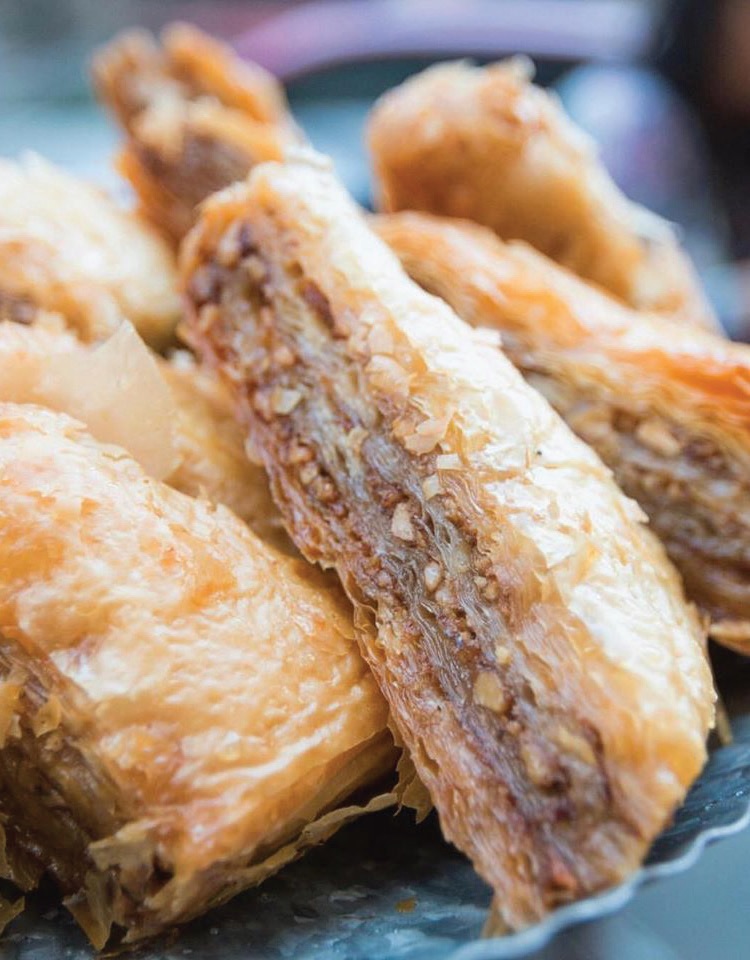
➽ Greek from Greece
HQ: Hoboken, NJ
Locations: 10
CEO: George Drosos
Slogan: “Daily Trips to Greece”
CEO George Drosos isn’t shy about his ambitions for Greek from Greece. “Our vision is GFG to become the biggest Greek fast-casual brand globally,” he tells Estiator. “For 2021 we plan to fully operate 50 locations, and within the next five years, our plan is to operate over 200 locations nationally.” The company is already turbo-charging its 2021; Greek from Greece took over 30 locations of Northeast chain Dairy Barn, and is on track to convert them by year’s end. At the moment, Greek from Greece operates in New York, New Jersey, and Pennsylvania.
The brand’s concept is bakery-cafés with hearty all-day menus. Its unique selling proposition: products from the motherland. “GFG is the only bakery in which all products are made in Greece. The concept’s wheat, olives, corn, and tomatoes grow under the Greek sun and the beneficial sea breeze before being imported to all GFG locations,” the company’s site claims. “The concept also perfectly aligns with the universal shift towards organic, natural ingredients, and the growing popularity of the Mediterranean Diet as the premier paradigm of healthy, natural eating.”
Among its offerings: soups, savory Greek pies, salads, fresh-baked breads, and sweets like baklava and galaktoboureko. Locations also sell Greek products like Esti oils, Krocus Kozanis teas, and Entopia honey.
In a post-Covid world, franchise businesses offer more security for operators, Drosos contends. “Franchise businesses are 100% more resilient at a time like this,” he says. “To be part of a bigger team is always helpful in tough periods. A franchise business has all the tools in hand—marketing, supply chain, technology—to keep operating and stay strong.”
Greek from Greece franchisee requirements: According to the company, prospective franchisees must have $500K net worth; $250K liquid capital available for investment; must be ready to begin development within the next three to six months; and must be ready to develop a minimum fiveunit territory in a major U.S. area.
The ABCs of Franchising
According to the International Franchise Association (franchise.org), franchising is a method of distributing products or services involving a franchisor, who establishes the brand’s trademark or trade name and a business system, and a franchisee, who pays a royalty and often an initial fee for the right to do business under the franchisor’s name and system.
At its core, says the IFA, franchising is about the franchisor’s brand value, how the franchisor supports its franchisees, how the franchisee meets its obligations to deliver the products and services to the system’s brand standards and—most importantly—the relationship that the franchisor has with its franchisees.
Franchises can involve a significant investment from franchisees. But according to The Balance Small Business, one of the reasons restaurant franchises are so expensive is that they’re turnkey. The kitchen layout, dining room design, menu, and even the marketing campaign are all done for you. You don’t have to work at building name recognition because that recognition is part of what you are buying. In many ways, you are purchasing an automated business.
Services that franchisors provide to franchisees typically include:
➽A recognized brand name
➽Site selection and site development assistance
➽Training for the franchisee and their management team
➽Research and development of new products and services
➽Headquarters and field support
➽Initial and continuing marketing and advertising.
Franchisors do not guarantee success or profits. Franchisees can suffer financial losses. Some franchisees end up closing locations that don’t succeed.

